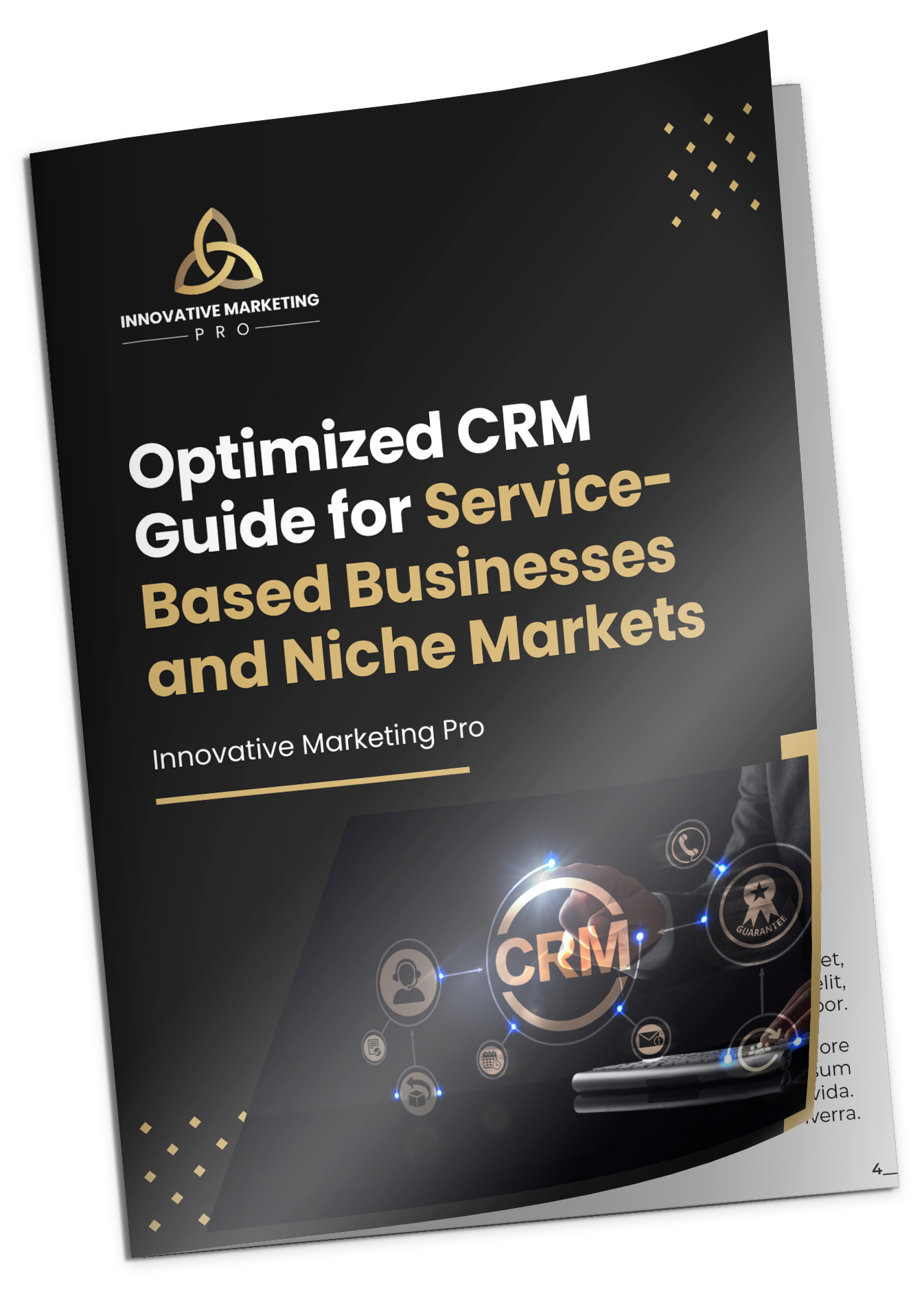Watch The Journey
BLOG
Why Superior Customer Relationship Management Will Determine Winners and Losers
Friday, April 26, 2024
Jeremy Coates
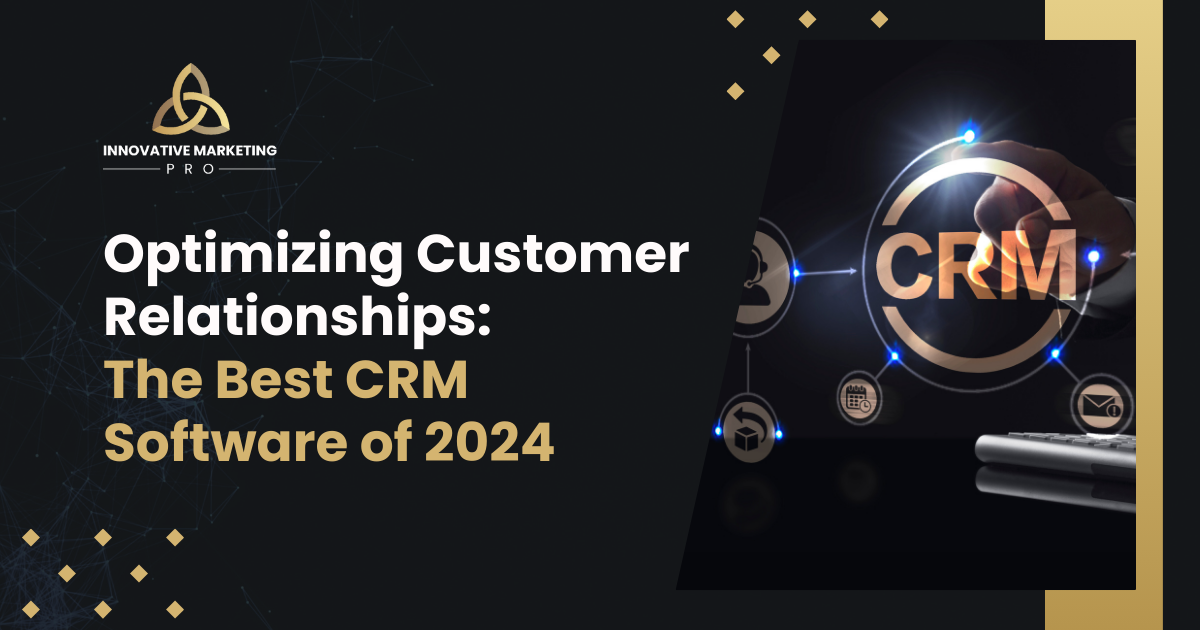
Introduction: Navigating the 2024 Business Landscape with Superior CRM Systems
As we enter 2024, the business environment continues to evolve at an unprecedented pace, driven by rapid technological advancements and shifting consumer expectations. In this era of digital transformation, companies across various industries are finding themselves in a fiercely competitive marketplace where customer-centric strategies have become the cornerstone of business success. This dynamic landscape demands not only an understanding of customer needs but also the capability to respond swiftly and effectively.
The essence of today's business competitiveness lies in the ability to leverage technology to forge stronger, more meaningful connections with customers. It's no longer just about selling a product or service but about creating an experience that resonates with and retains customers. This shift has catapulted Customer Relationship Management (CRM) systems from helpful tools to essential components of any successful business strategy.
In this environment, superior CRM systems emerge as pivotal assets for businesses aiming to thrive. These systems do not merely manage customer interactions but serve as comprehensive platforms that significantly reduce operational costs, enhance profitability, and extend customer lifetime value. By integrating advanced CRM solutions, businesses can differentiate themselves in a crowded marketplace, turning the challenge of customer management into a strategic advantage.
Superior CRM systems provide a multifaceted framework through which businesses can automate customer communication, streamline sales processes, and deploy targeted marketing strategies that speak directly to the individual needs and preferences of customers. In doing so, these systems help businesses not only to attract new customers but also to maintain and deepen existing relationships. This dual capability is crucial in maximizing customer lifetime value—a metric increasingly seen as a critical determinant of business viability in the long term.
Moreover, the advanced analytics offered by top-tier CRM systems allow businesses to glean insightful data from customer interactions and sales trends. This data is instrumental in refining marketing strategies, optimizing product offerings, and ultimately, driving business decisions that enhance profitability. By providing a 360-degree view of the customer journey, CRM systems enable businesses to anticipate customer needs and tailor interactions to exceed expectations, thereby fostering loyalty and encouraging repeat business.
As we delve deeper into the nuances of CRM technologies and their impact on business operations, it becomes clear that the adoption of such systems is not merely beneficial but essential for companies looking to secure a competitive edge in 2024 and beyond. The subsequent sections will explore the specific functionalities of CRM systems that support these outcomes, highlighting how businesses can leverage CRM to transform customer data into profitable action and sustained growth.
Join The
Innovative Marketing Pro
15 Days FREE Trial!
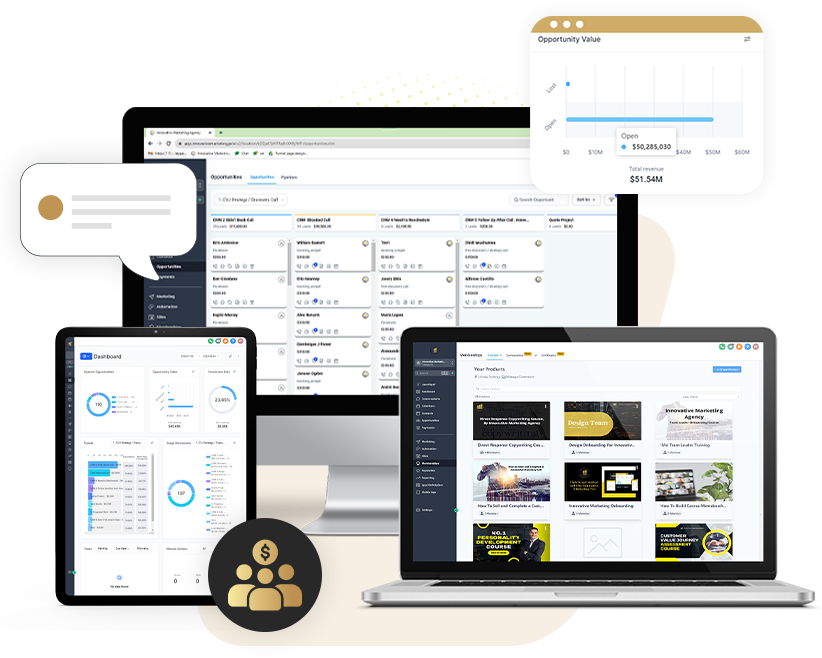
You Pay $0 Today
You Won't be charged until Free Trial Ends
No Commitment, Cancel Anytime
As a reminder we will email you 7 days before Trial Ends
Recent Posts
AI-Powered Lead Generation: Key Strategies for Business Success in 2024
Why Superior Customer Relationship Management Will Determine Winners and Losers
Choosing the Right Email Marketing Software for Your Business
The Ultimate Guide to Social Media Management Tools
Maximizing Conversions: The Best Funnel Builders Reviewed
Building Strong Online Communities: Best Platforms and Practices"
The Strategic Importance of CRM in Modern Business
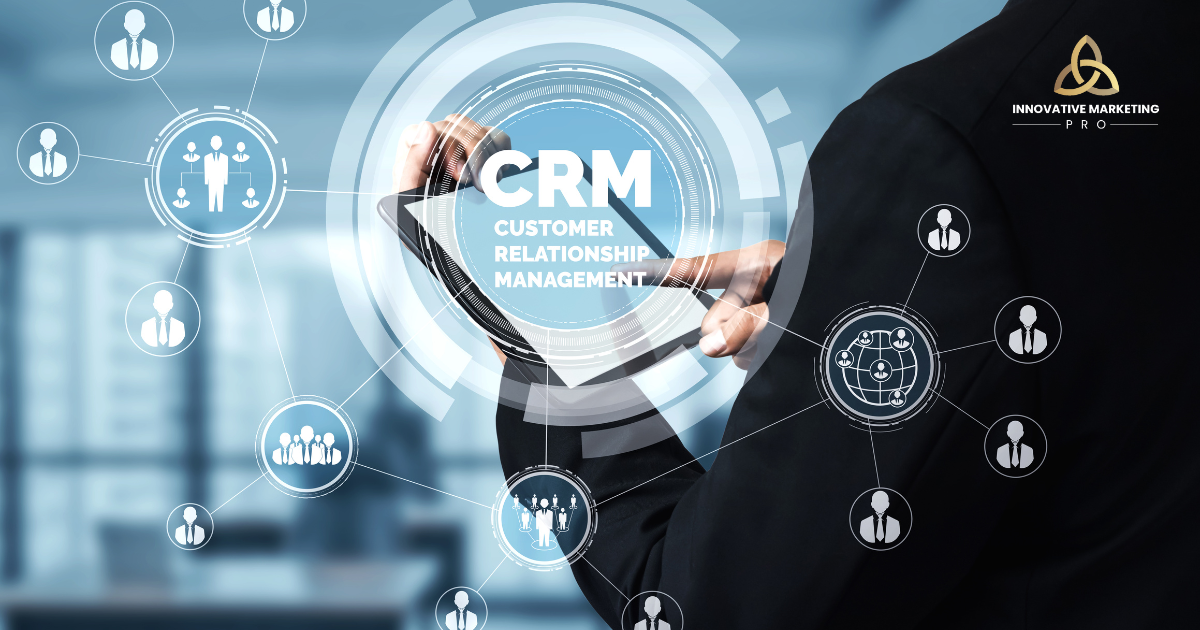
In today's business landscape, Customer Relationship Management (CRM) extends far beyond a mere technological tool; it is an indispensable strategic framework that fundamentally reshapes how companies interact with their customers. Let’s dive into defining what a CRM is, understanding its pivotal roles in modern businesses, and exploring its impact on operational efficiency and customer personalization.
Defining CRM
Customer Relationship Management (CRM) is a comprehensive approach used by businesses to manage and analyze customer interactions and data throughout the customer lifecycle. The goal of CRM is to improve business relationships with customers, assist in customer retention, and drive sales growth. CRM systems compile data from a range of different communication channels, including a company's website, telephone, email, live chat, marketing materials, and more recently, social media. Through the CRM approach and the systems used to facilitate it, businesses learn more about their target audiences and how to best cater to their needs, thus enhancing the customer's overall experience.
CRM as a Strategic Framework
CRM’s role transcends the traditional boundaries of IT; it serves as a strategic framework that influences every segment of the business. It provides the infrastructure for tracking, managing, and analyzing interactions with current and potential customers, enabling businesses to:
Streamline Communication: CRM systems ensure that customer interactions are not siloed within individual departments but are accessible across the organization. This transparency eliminates redundancy and enhances the consistency of customer communication.
Enhance Decision Making: With CRM, businesses can leverage predictive analytics and data-driven insights to make informed decisions that align with customer preferences and behavior trends.
Increase Efficiency: By automating routine tasks, CRM frees up employees to focus on more complex aspects of customer service and sales strategies, enhancing overall productivity.
Harnessing Customer Data with CRM
CRM systems are pivotal in capturing and harnessing customer data to streamline business operations and tailor customer experiences. They perform a variety of functions that transform raw data into actionable insights:
Data Collection: CRM systems gather data from multiple sources, including direct customer interactions, social media, and other digital footprints. This data encompasses everything from basic demographic information to more detailed behavioral metrics.
Data Analysis: Through robust analytical tools, CRM systems dissect complex datasets to uncover patterns in customer behavior and preferences. This analysis informs everything from marketing campaigns to product development.
Customer Segmentation: Based on data analysis, CRM systems help businesses segment their customers into different groups according to various criteria such as purchasing behavior, value to the company, and engagement level. This segmentation allows for more targeted and effective marketing strategies.
Personalization: Utilizing the insights gained from data analysis and customer segmentation, businesses can craft personalized interactions and offers that resonate with individual customers or specific customer groups. Personalization increases the efficacy of marketing efforts, enhances customer satisfaction, and boosts loyalty.
Economic Advantages of Advanced CRM Systems
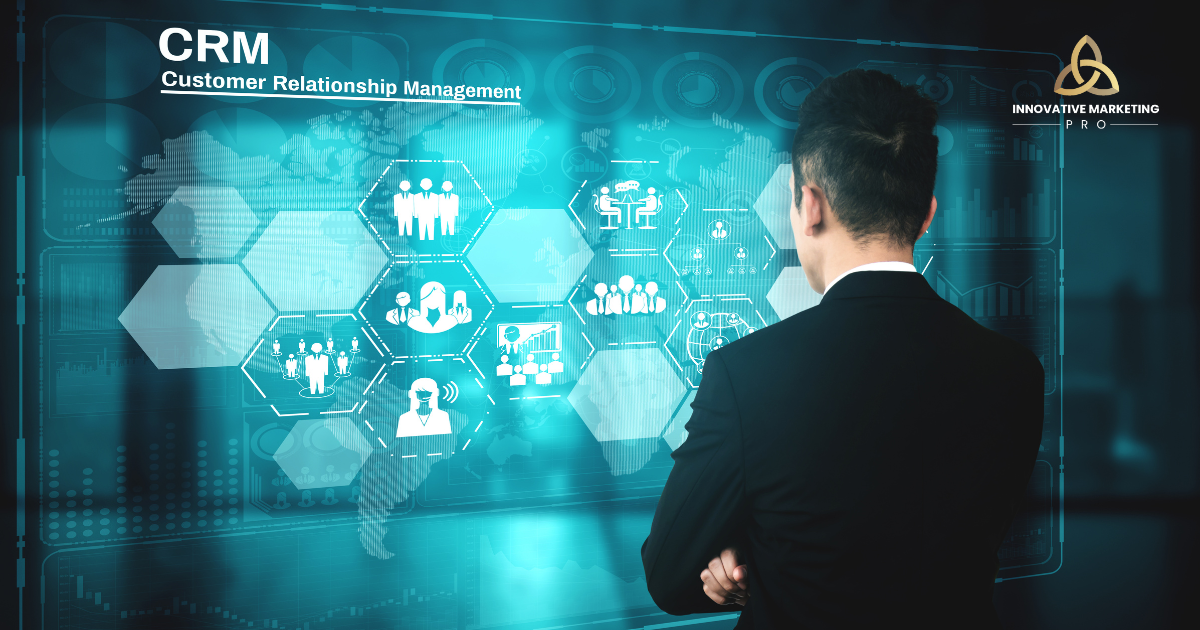
Advanced Customer Relationship Management (CRM) systems deliver significant economic benefits to businesses by enhancing their marketing, sales, and customer service strategies. These systems are instrumental in reducing costs, increasing profits, and maximizing customer lifetime value. Here's how they achieve these economic advantages:
Reducing Lead Costs: One of the primary economic benefits of utilizing advanced CRM systems is the reduction in lead acquisition costs. CRM systems enhance the efficiency of marketing strategies by providing tools to accurately target the right audience. They achieve this through detailed analytics that track and assess the effectiveness of various marketing channels and customer interactions. This data allows businesses to identify the most lucrative customer segments and focus their marketing efforts where they are most effective, thus reducing wastage of resources on less responsive markets.
Moreover, CRM systems facilitate improved lead management by nurturing potential customers with automated, personalized content and follow-ups. This not only increases the likelihood of conversion but also ensures that marketing dollars are spent on leads that show real potential, thereby optimizing the cost-effectiveness of lead generation and acquisition strategies.
Reducing Lead Costs: One of the primary economic benefits of utilizing advanced CRM systems is the reduction in lead acquisition costs. CRM systems enhance the efficiency of marketing strategies by providing tools to accurately target the right audience. They achieve this through detailed analytics that track and assess the effectiveness of various marketing channels and customer interactions. This data allows businesses to identify the most lucrative customer segments and focus their marketing efforts where they are most effective, thus reducing wastage of resources on less responsive markets.
Moreover, CRM systems facilitate improved lead management by nurturing potential customers with automated, personalized content and follow-ups. This not only increases the likelihood of conversion but also ensures that marketing dollars are spent on leads that show real potential, thereby optimizing the cost-effectiveness of lead generation and acquisition strategies.
Enhancing Customer Lifetime Value : CRM systems play a crucial role in enhancing the lifetime value of customers by enabling businesses to retain customers for longer periods through personalized services and predictive analytics. By analyzing customer data and past behavior, CRM systems can predict future buying behaviors and preferences, allowing companies to tailor their offerings and communications to individual customer needs.
Personalization, as facilitated by CRM, extends beyond mere sales pitches. It involves understanding the customer’s journey and providing relevant content and solutions at each stage. For instance, if a CRM system identifies a customer who frequently purchases a particular product, the business can send targeted promotions or information about related products, thereby increasing the likelihood of additional sales.
Furthermore, CRM systems help in identifying at-risk customers and implementing retention strategies preemptively. By analyzing customer interaction trends and satisfaction levels, businesses can take corrective actions to address any issues, thus reducing churn rates and enhancing customer loyalty.
Integrating AI with CRM: The Next Frontier
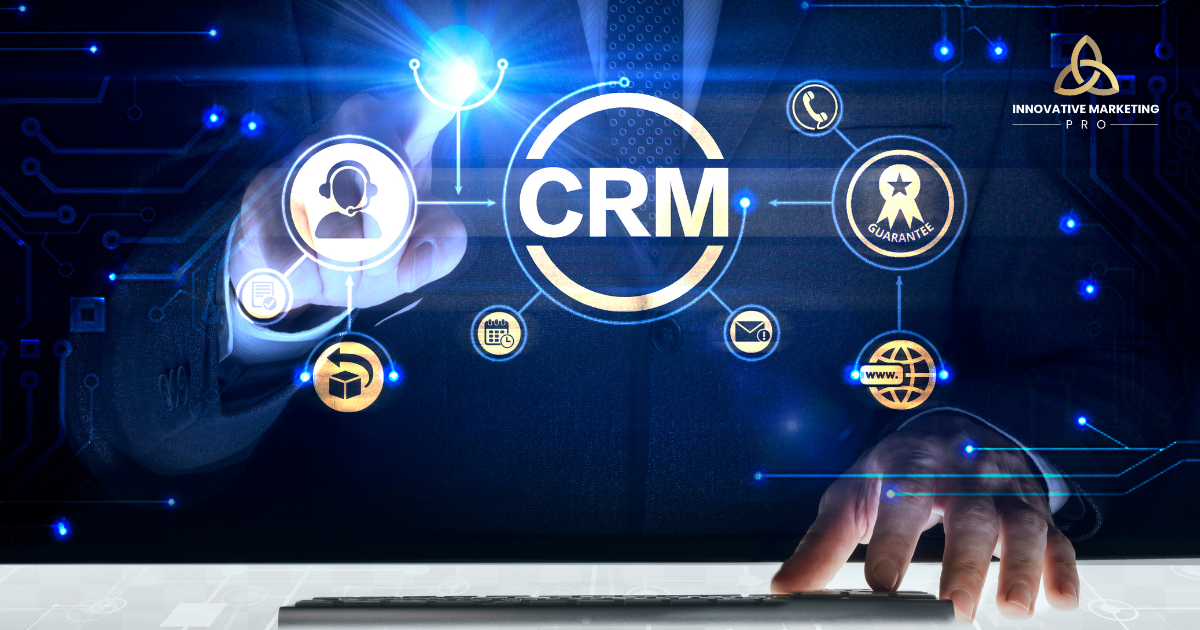
The integration of Artificial Intelligence (AI) with Customer Relationship Management (CRM) systems represents a significant leap forward in how businesses manage customer interactions and data. AI enhances CRM capabilities dramatically, automating complex processes and providing deeper insights into customer behavior. This integration is transforming three key areas: lead generation, customer interaction, and lead qualification.
Automating Lead Generation
AI significantly enhances the lead generation capabilities of CRM systems by automating the identification and capture of potential leads through sophisticated data analysis and pattern recognition. By sifting through vast amounts of data from various sources such as social media, company websites, and existing customer databases, AI algorithms identify patterns and behaviors that indicate potential interest in a product or service. For example, AI can analyze web browsing patterns to detect users who have visited specific product pages multiple times, indicating a higher likelihood of purchase intent.
These insights allow CRM systems to automatically target and initiate contact with these potential leads, perhaps by sending personalized emails or messages tailored to their specific interests. This proactive approach not only saves significant time and resources but also increases the effectiveness of lead generation activities by focusing on individuals who are more likely to convert, thus optimizing marketing efforts and boosting ROI.
AI-Driven Chat and Conversations
AI-powered chatbots and virtual assistants integrated within CRM systems are revolutionizing customer service and engagement. These AI tools handle real-time interactions with customers, providing instant responses to inquiries and support requests around the clock. This capability significantly improves response times and enhances customer satisfaction by ensuring that customers feel heard and assisted without delays.
Moreover, AI-driven conversations are not limited to basic queries; they can handle complex interactions such as resolving issues, providing detailed product information, and even guiding customers through the purchasing process. By learning from each interaction, AI chatbots become increasingly efficient, delivering more personalized and contextually relevant responses, which further enhances the customer experience.
Enhancing Lead Qualification
AI also plays a crucial role in enhancing the process of lead qualification within CRM systems. Leveraging the vast amount of CRM data, AI algorithms can score and prioritize leads based on their likelihood to convert. This process involves analyzing past interactions, purchase history, customer demographics, and engagement levels to assess a lead’s potential value to the company.
By assigning a score to each lead, AI helps sales teams focus their efforts on the most promising prospects, those who are deemed most likely to make a purchase or those who may offer the highest potential lifetime value. This prioritization not only makes the sales process more efficient but also increases the chances of closing deals by concentrating resources on leads with the highest conversion potential.
CRM’s Influence on Operational Efficiency
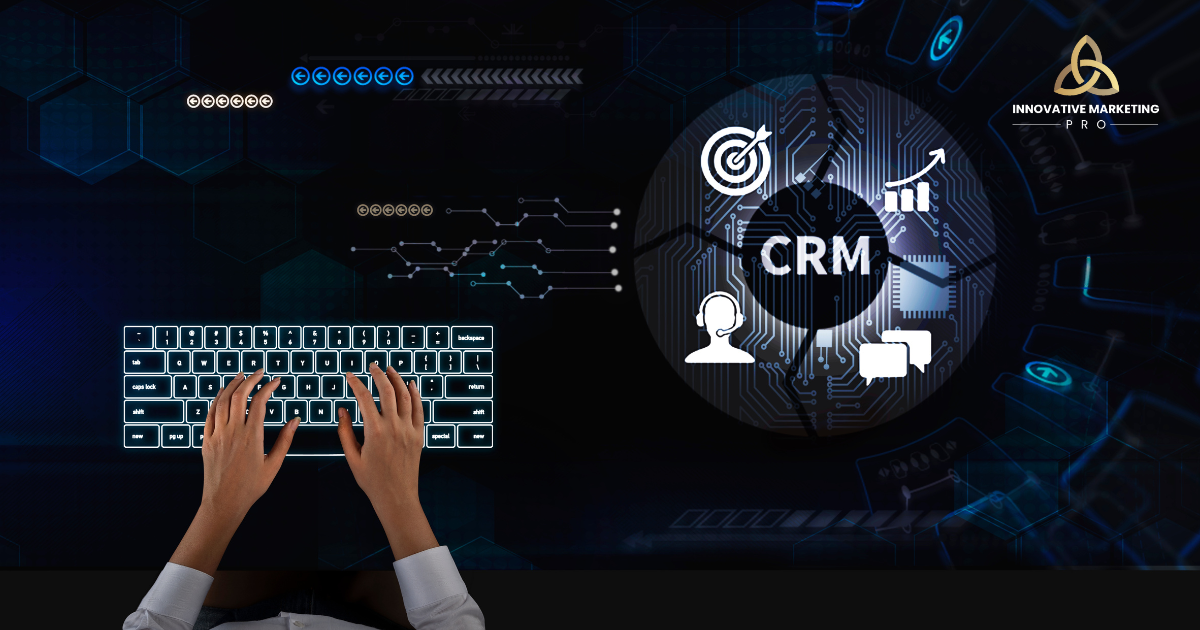
Customer Relationship Management (CRM) systems are pivotal in enhancing operational efficiency across various business sectors. By centralizing data and automating numerous routine tasks, CRM systems help organizations streamline their workflows, resulting in significant cost savings and improved decision-making processes. This section outlines how CRM systems enhance various business processes and their impact on reducing operational costs and minimizing errors.
Streamlining Business Processes
CRM systems integrate various aspects of business operations from sales, customer service, to marketing, creating a unified platform that manages all customer interactions and business processes. This integration allows for seamless communication between departments, ensuring that all team members have access to up-to-date information. For instance, sales teams can quickly access customer service histories to tailor their sales pitches, while customer service agents can view transaction records to better resolve customer issues.
Moreover, CRM systems automate tasks such as data entry, lead routing, and follow-up scheduling, which traditionally consume considerable time and resources. Automation not only speeds up these processes but also frees up staff to focus on more strategic activities that add greater value to the business. For example, sales representatives can spend more time engaging with clients rather than managing data, leading to more opportunities and closed deals.
Reducing Operational Costs
By automating routine tasks and improving the coordination between different departments, CRM systems significantly reduce operational costs. Automation minimizes the labor-intensive tasks traditionally done manually, decreasing the need for a large administrative staff and reducing human error that can lead to costly corrections. For instance, automatic updating of customer records across all departments ensures that every team works with the most current information, reducing the chances of errors and discrepancies.
CRM systems also help in resource management by providing detailed analytics on resource utilization and customer engagement metrics. This data is invaluable for identifying areas where resources are being underutilized or wasted, allowing management to make informed decisions about resource allocation and operational adjustments.
Enhancing Decision-Making
One of the most significant benefits of CRM systems is the enhancement of decision-making capabilities. By collecting and organizing data from various touchpoints, CRM systems provide a comprehensive view of customer behavior, sales trends, and marketing effectiveness. This wealth of data is analyzed to produce actionable insights, which can guide strategic decisions.
Efficient data management through CRM enables businesses to quickly identify trends, anticipate market changes, and respond proactively. Predictive analytics, a feature of advanced CRM systems, allows businesses to forecast future trends based on historical data, enhancing their ability to make strategic decisions that align with anticipated market developments. This predictive capability ensures that businesses remain agile and can adjust their strategies in response to dynamic market conditions.
Future Trends in CRM Technology
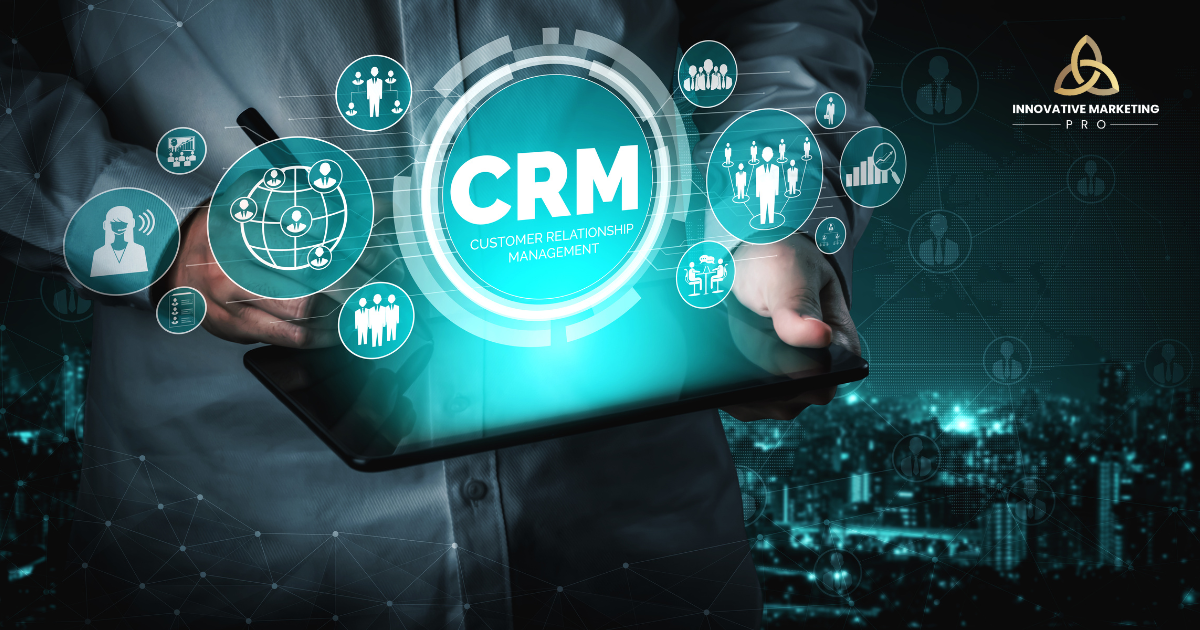
As we look to the future, Customer Relationship Management (CRM) technologies are poised to undergo transformative changes, particularly through the integration of Artificial Intelligence (AI) and deeper incorporation into core business operations. These advancements will not only refine how businesses interact with customers but also redefine strategic planning and execution across industries. Here, we explore the predicted evolution of CRM technologies, emphasizing AI enhancements and their broader implications for business strategies, as well as the increasing indispensability of CRM systems for achieving competitive success.
AI Enhancements in CRM Systems
AI is set to further enhance CRM capabilities by automating complex processes, providing deeper insights, and enabling more personalized customer interactions. As AI technology advances, we can anticipate several developments:
Predictive Customer Analytics: AI-driven CRMs will enhance their predictive analytics capabilities, using machine learning algorithms to analyze past customer behavior and predict future actions. Businesses will be able to anticipate customer needs, personalize marketing efforts, and adjust sales strategies in real-time, significantly improving customer engagement and satisfaction.
Automated Customer Interactions: With advancements in natural language processing, AI will empower CRM systems to conduct sophisticated, meaningful interactions with customers without human intervention. AI chatbots will handle a broader range of customer service issues, manage follow-up communications, and even engage in upselling and cross-selling, all while maintaining a human-like interaction quality.
Enhanced Decision Making: AI will streamline decision-making processes by providing executives with real-time data insights and recommendations. This includes optimizing pricing models, adjusting product offerings, and identifying optimal times for market entry. AI’s ability to quickly process and analyze large volumes of data will become a cornerstone in strategic business planning.
CRM Integration into Business Operations
The future of CRM technology also lies in its potential to become even more deeply integrated into daily business operations, making it an indispensable tool for competitive success. This integration will manifest in several ways:
Operational CRM: CRM systems will go beyond managing customer relationships to directly controlling business operations. This includes inventory management, procurement, human resources, and financial management integrations. CRM systems will effectively serve as the operational backbone, coordinating all facets of the business to ensure that customer needs directly guide operational decisions.
IoT Integration: The integration of CRM with the Internet of Things (IoT) will enable businesses to use CRM data to manage physical assets and devices. For instance, CRM systems could automatically schedule maintenance for equipment when needed, based on usage patterns monitored via IoT devices.
Unified Data Ecosystem: CRMs will evolve to not just collect and analyze customer data, but to serve as a hub for all business data. This unified approach will ensure consistency across data sets, reduce data silos, and enhance data security by centralizing data management under one system.
Conclusion: The Decisive Role of Advanced CRM Systems in Modern Business Success
As we navigate the complexities of the 2024 business landscape, the pivotal role of Customer Relationship Management (CRM) systems in defining organizational success cannot be overstated. Advanced CRM systems stand at the forefront of this dynamic environment, offering more than just operational tools—they are strategic assets that profoundly impact every facet of business operations. This conclusion reiterates the essential benefits of investing in sophisticated CRM technologies and underscores why superior CRM implementation will distinguish market leaders from those lagging behind.
Key Benefits of Advanced CRM Systems
The benefits of deploying advanced CRM systems are extensive and multifaceted. Firstly, these systems provide an unparalleled ability to understand and anticipate customer needs through detailed analytics and data-driven insights. This capability allows businesses to tailor their offerings precisely, enhancing customer satisfaction and fostering loyalty in increasingly competitive markets.
Secondly, CRM systems streamline various operational processes by automating routine tasks, reducing human error, and increasing overall efficiency. From marketing campaigns to sales strategies and customer service, CRM integration ensures that resources are allocated efficiently, reducing costs and maximizing output.
Moreover, advanced CRM systems enhance decision-making processes. With comprehensive data at their fingertips, business leaders can make informed, strategic decisions quickly—responding adeptly to market changes and customer demands. This responsiveness is crucial in maintaining a competitive edge.
CRM’s Critical Role in a Customer-Centric Business Environment
In the fast-paced, customer-centric business environment of 2024, the ability to swiftly adapt and respond to customer preferences and market trends is crucial. CRM systems are at the heart of this adaptability, providing the tools necessary to engage effectively with customers across various touchpoints. They ensure that every customer interaction is tracked, analyzed, and leveraged to improve future interactions, making CRM systems indispensable for businesses aiming to thrive in a landscape where customer expectations are continually evolving.
The integration of AI and other technological advancements within CRM platforms further reinforces their critical role. These technologies not only automate processes but also bring a level of personalization and customer engagement that was previously unattainable. Businesses that harness these capabilities effectively will not only survive but thrive, setting new standards for customer engagement and operational efficiency.
Final Thoughts
In conclusion, the strategic implementation of advanced CRM systems is more than a technological upgrade—it is a vital investment in the future viability of any business. As we look towards the rest of 2024 and beyond, it becomes increasingly clear that the divide between businesses that thrive and those that fall behind will largely be determined by their ability to implement and leverage these advanced systems. Now is the time for companies to embrace these technologies, adapt their strategies accordingly, and secure their position as leaders in the digitally-driven, customer-focused market of tomorrow.
As we've explored the transformative potential of advanced CRM systems, it's clear that these tools are not just beneficial—they are essential for any business aiming to succeed in today’s fast-paced, customer-centric environment. To truly capitalize on the opportunities presented by these technological advancements, we encourage all business leaders and decision-makers to take a proactive step towards evaluating and enhancing their current CRM strategies.
Evaluate Your Current CRM System
Take a moment to assess the capabilities of your current CRM system. Does it integrate seamlessly with new technologies like AI? Can it provide detailed analytics and real-time data to aid in decision-making? Is it adaptable to the changing needs of your business and customers? If your current system falls short in these areas, it may be time to consider an upgrade. Modern CRM systems offer powerful features that can dramatically improve efficiency, customer satisfaction, and ultimately, your bottom line.
Explore Advanced CRM Capabilities
To fully understand the benefits of an advanced CRM system, we highly recommend reaching out to CRM experts who can provide insights into the latest features and how they can be applied to your specific business context. Experts can help decipher complex features and guide you through the myriad options available in today’s market.
Schedule a Free Demo or Consultation
To see firsthand how a state-of-the-art CRM system can transform your business, consider scheduling a free demo or consultation. This is a no-obligation way to explore the functionalities of advanced CRM systems tailored to your business needs. During the demo, you’ll have the opportunity to see how these systems handle real-life scenarios relevant to your business, ask questions specific to your challenges, and understand the potential ROI from making the switch or upgrade.
Take Advantage of a Free Assessment
Many CRM providers offer a free assessment of your current CRM setup or Customer Value Journey. This assessment can provide valuable insights into how well your current system is performing and where there may be gaps in your strategy or technology integration. It’s an excellent opportunity to receive personalized advice on improving your customer relationship management practices to better meet the demands of today’s market.
Act Now
The landscape of CRM technology is evolving rapidly, and businesses that stay ahead of the curve will find themselves in a stronger position to compete and succeed. Whether you’re looking to fully integrate AI capabilities, take advantage of advanced analytics, or simply improve your customer engagement strategies, the time to act is now.
Click here to schedule your free demo or consultation and discover how upgrading your CRM system can open new doors for your business. Let's redefine customer engagement together and push your business towards unprecedented growth.
Take this crucial step towards not just meeting but exceeding your business goals. Remember, in the race to business excellence, leveraging cutting-edge CRM solutions is not just an option—it's a necessity.
Join The
Innovative
Marketing Pro
15 Days FREE Trial!

You Pay $0 Today
You Won't be charged until Free Trial Ends
No Commitment, Cancel Anytime
As a reminder we will email you 7 days before Trial Ends
Recent Posts
AI-Powered Lead Generation: Key Strategies for Business Success in 2024
Why Superior Customer Relationship Management Will Determine Winners and Losers
Choosing the Right Email Marketing Software for Your Business
The Ultimate Guide to Social Media Management Tools
Maximizing Conversions: The Best Funnel Builders Reviewed
Building Strong Online Communities: Best Platforms and Practices"
IM Agency Services
Marketing Research
Paid Advertising
Direct Response Copywriting
Funnels and Automations
Marketing Automation
Business Development
IM Pro Features
Lead Generation Automation
Sales Funnels
Customer Relationship Management
Courses Builder
Affiliate Builder
Invoicing
Team Scheduling
Email Automations
Pipelines and workflow
And Way More....
Address & Phone




Innovative Marketing Agency
We Design, Build, & Optimize Campaigns
Copyright © 2026 Innovative Marketing Agency LLC




















